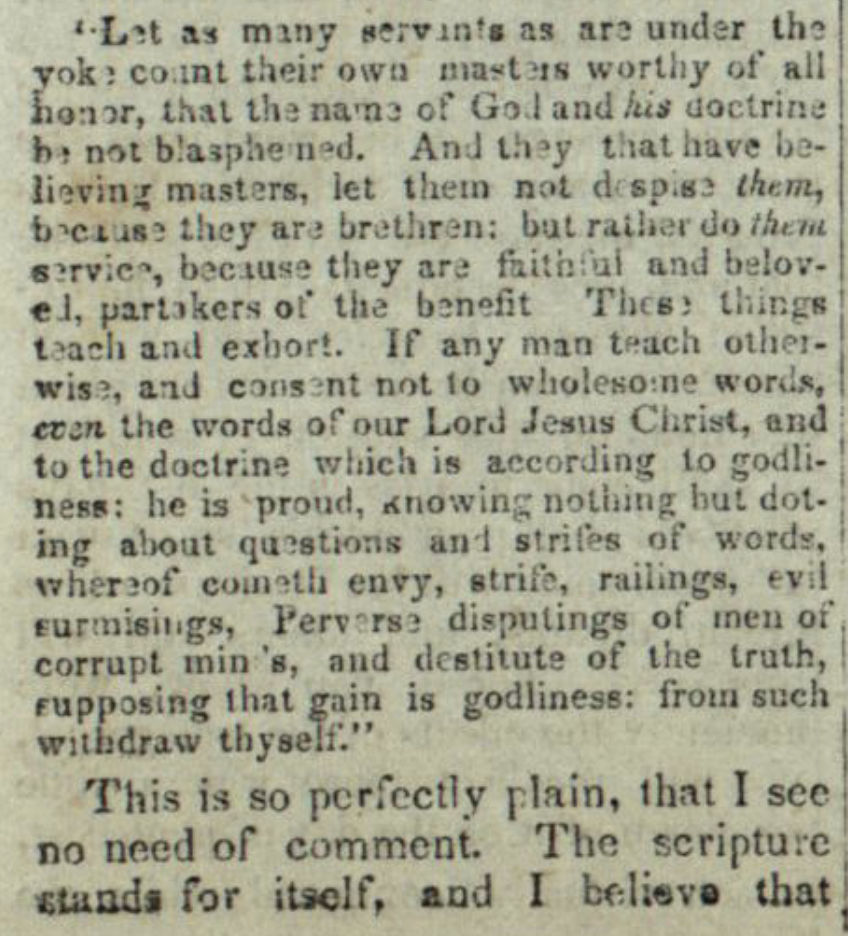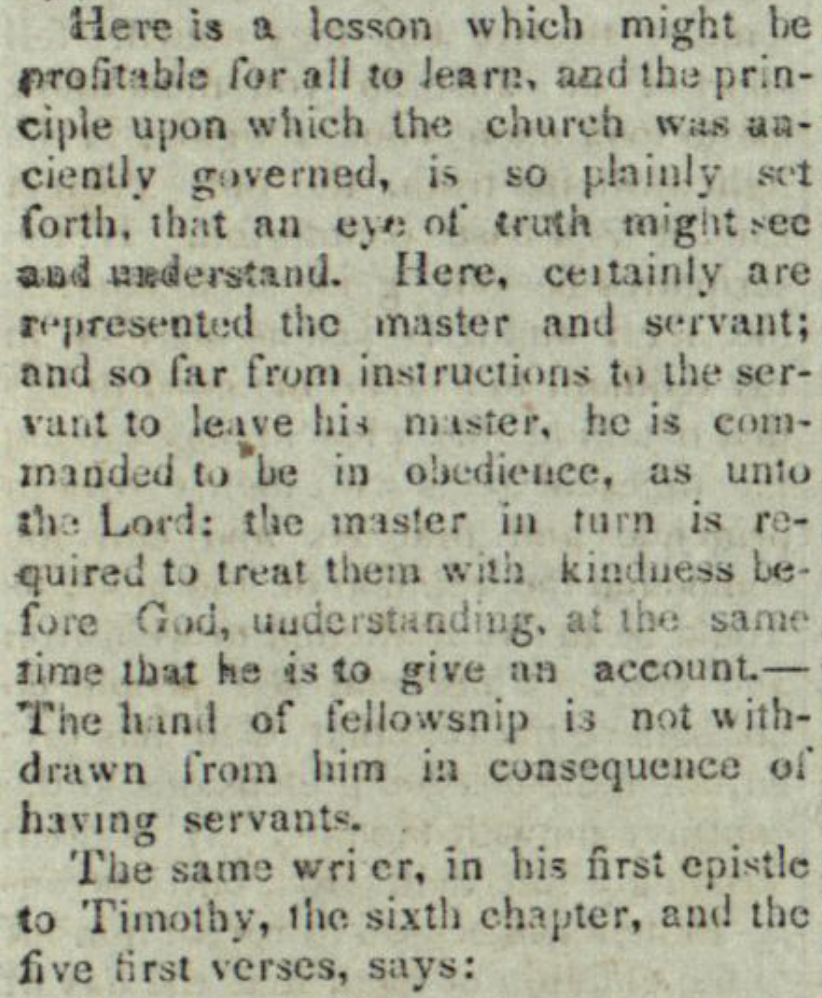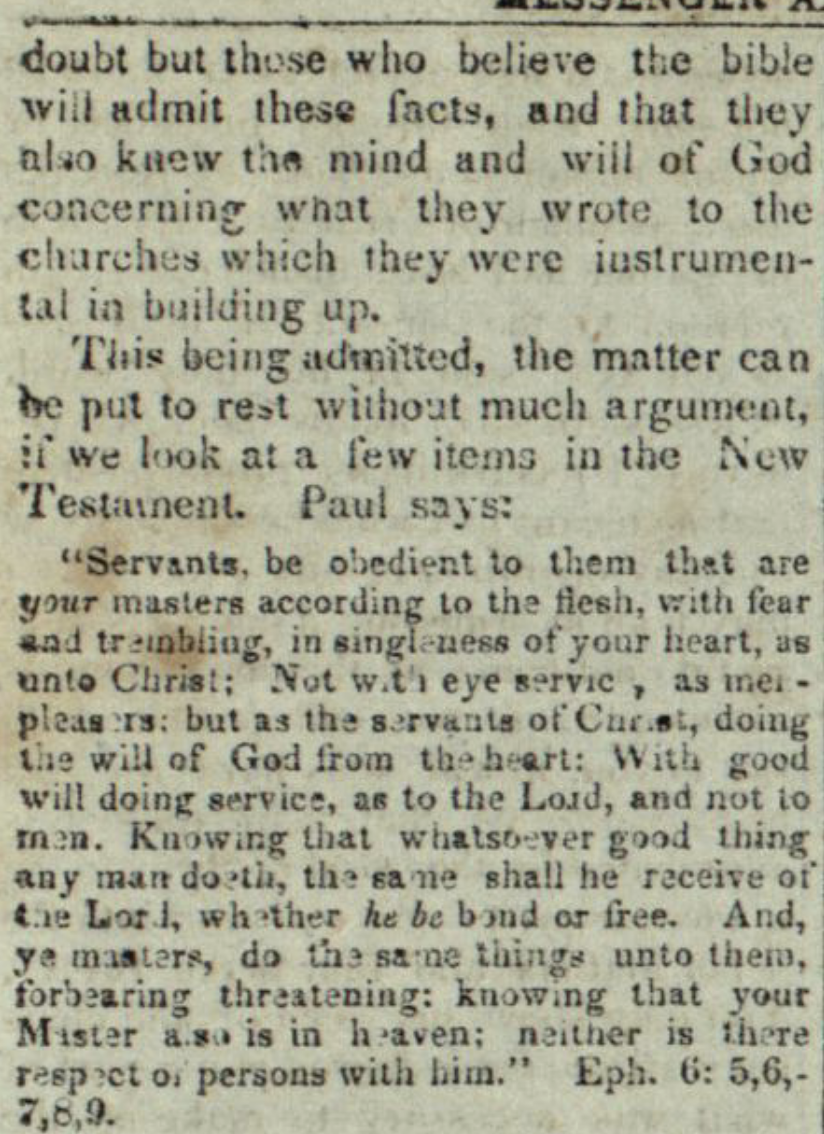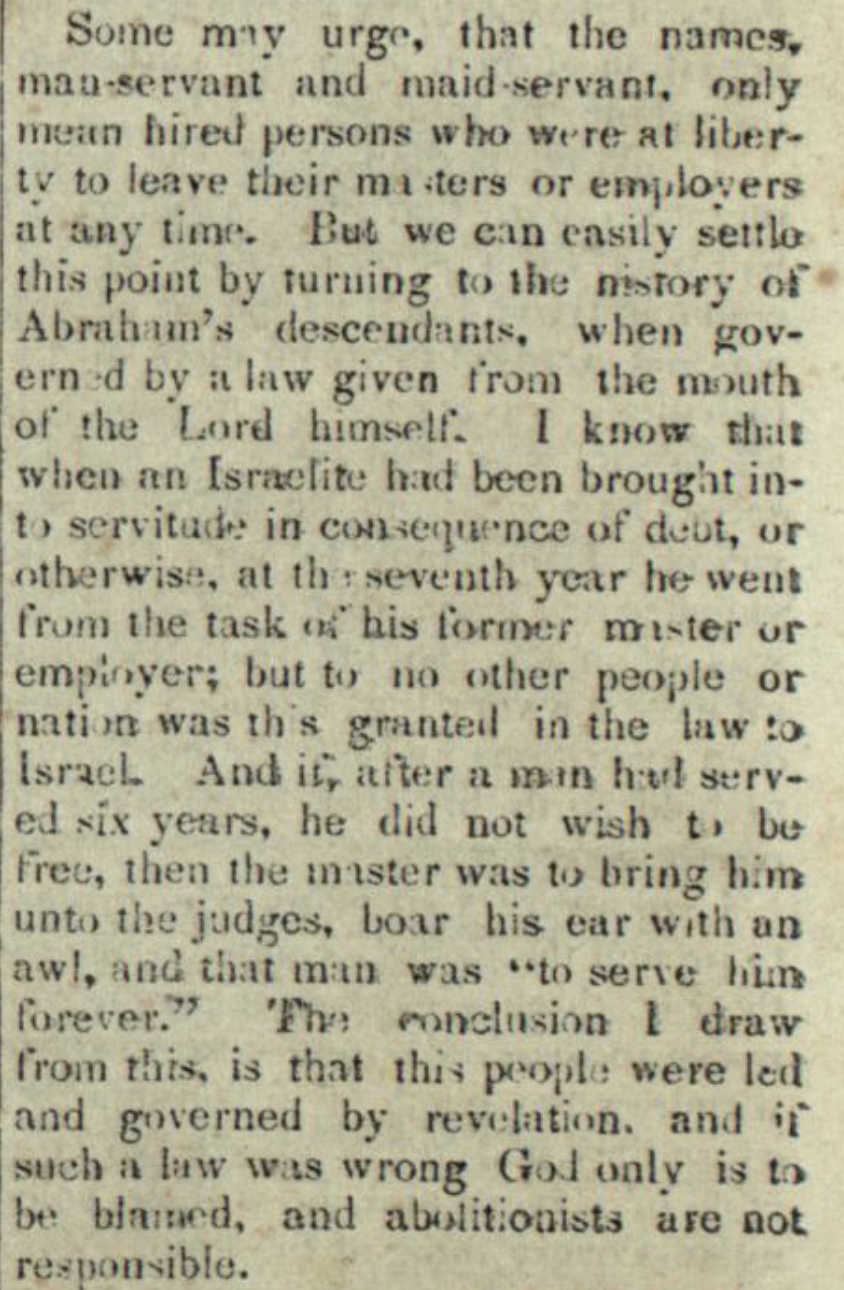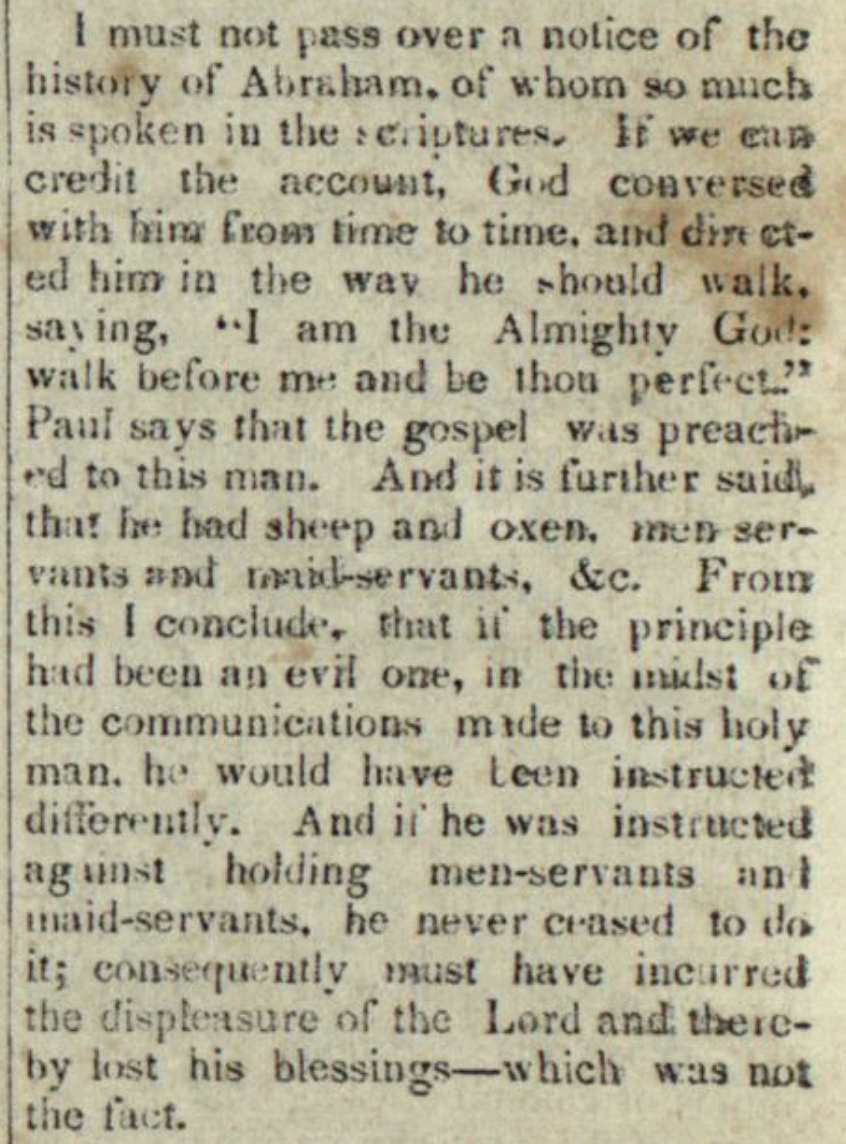Joseph interprets the Bible to justify his views on slavery.
- Type
- Letter
- Hearsay
- DirectReprint
- Reference
Joseph Smith, Jr., Letter to Oliver Cowdery, Messenger and Advocate vol. 2, no. 7 (April 1836):2-3
- Scribe/Publisher
- Messenger and Advocate
- Transcription
I must not pass over a notice of the history of Abraham, of whom so much is spoken in the scriptures. If we can credit the account, God conversed with him from time to time, and directed him in the way he should walk, saying, “I am the Almighty God: walk before me and be thou perfect.” Paul says that the gospel was preached to this man. And it is further said, that he had sheep and oxen, men-servants and maid-servants, &c. From this I conclude, that if the principle had been an evil one, in the midst of the communications made to this holy man, he would have been instructed differently. And if he was instructed against holding men-servants and maid-servants, he never ceased to do it; consequently must have incurred the displeasure of the Lord and thereby lost his blessings—which was not the fact.
Some may urge, that the names, man-servant and maid-servant, only mean hired persons who were at liberty to leave their masters or employers at any time. But we can easily settle this point by turning to the history of Abraham’s descendants, when governed by a law given from the mouth of the Lord himself. I know that when an Israelite had been brought into servitude in consequence of debt, or otherwise, at the seventh year he went from the task of his former master or employer; but to no other people or nation was this granted in the law to Israel. And if, after a man had served six years, he did not wish to be free, then the master was to bring him unto the judges, boar his ear with an awl, and that man was “to serve him forever.” The conclusion I draw from this, is that this people were led and governed by revelation and if such a law was wrong God only is to be blamed, and abolitionists are not responsible.
Now, before proceeding any farther, I wish to ask one or two questions:—Were the apostles men of God, and did they preach the gospel? I have no doubt but those who believe the bible will admit these facts, and that they also knew the mind and will of God concerning what they wrote to the churches which they were instrumental in building up.
This being admitted, the matter can be put to rest without much argument, if we look at a few items in the New Testament. Paul says:
“Servants, be obedient to them that are your masters according to the flesh, with fear and trembling, in singleness of your heart, as unto Christ: Not with eye service, as men-pleasers: but as the servants of Christ, doing the will of God from the heart: With good will doing service, as to the Lord, and not to men. Knowing that whatsoever good thing any man doeth, the same shall he receive of the Lord, whether he be bond or free. And, ye masters, do the same things unto them, forbearing threatening: knowing that your Master also is in heaven; neither is there respect of persons with him.” Eph. 6:5, 6, 7, 8, 9.
Here is a lesson which might be profitable for all to learn, and the principle upon which the church was anciently governed, is so plainly set forth, that an eye of truth might see and understand. Here, certainly are represented the master and servant; and so far from instructions to the servant to leave his master, he is commanded to be in obedience, as unto the Lord: the master in turn is required to treat them with kindness before God, understanding at the same time that he is to give an account.— The hand of fellowship is not withdrawn from him in consequence of having servants.
The same wri[t]er, in his first epistle to Timothy, the sixth chapter, and the five first verses, says:
“Let as many servants as are under the yoke count their own masters worthy of all honor, that the name of God and his doctrine be not blasphemed. And they that have believing masters, let them not despise them, because they are brethren: but rather do them service, because they are faithful and beloved, partakers of the benefit These things teach and exhort. If any man teach otherwise, and consent not to wholesome words, even the words of our Lord Jesus Christ, and to the doctrine which is according to godliness: he is proud, knowing nothing but doting about questions and strifes of words, whereof cometh envy, strife, railings, evil surmisings, Perverse disputings of men of corrupt minds, and destitute of the truth, supposing that gain is godliness: from such withdraw thyself.”
This is so perfectly plain, that I see no need of comment. The scripture stands for itself, and I believe that these men were better qualified to teach the will of God, than all the abolitionists in the world.
- Citations in Mormonr Qnas
The B. H. Roberts Foundation is not owned by, operated by, or affiliated with the Church of Jesus Christ of Latter-day Saints.


